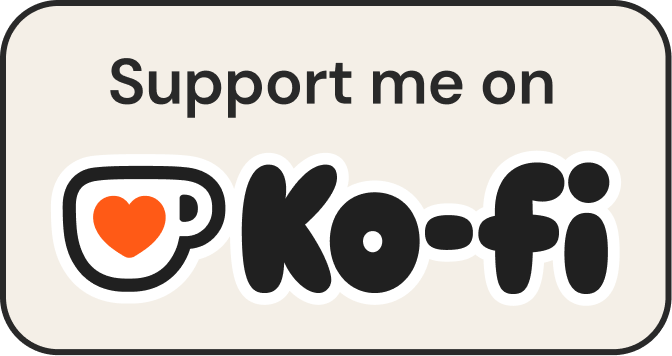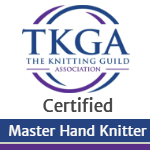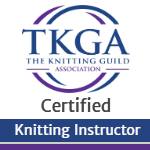Hi all!
I’m deep in the grind of Wintertime designing! The last few years it seems like I get myself into a heavy workload right around the holidays. I’m writing two articles and several patterns and knitted items to accompany the articles – all due early January! I’m on track to finish everything under my deadlines, but a lot of that is because I have a planner system that is working well for me!
So- let me show you what I use and how I use it. (This is a picture heavy post, just FYI!)
First off, I have a personal planner system that comes with me wherever I go (usually). Sometimes I leave it at home – if I’m just running to the grocery store, for example, but most of the time it comes with me. It’s a tad on the bulky side, but it still fits in my purse. And I keep trying to make it slimmer, but find that I can’t get rid of any of the individual parts and have it still work well for me.





Here’s what the Hobonichi looks like inside (these photos are from my new 2018 one, so it’s all nice and clean!) For anyone who may not know, there are several versions of planners from Hobonichi. The A6 size comes in Japanese or in English, and it houses monthly calendars and a page per day. The paper is fantastic Tomoe River paper which is super thin and takes fountain pens wonderfully. The thinness of the paper allows there to be a page for each day without making the booklet bulky. They also have a A5 size (called the Cousin – only available in Japanese) and a slim, but tall, booklet called the Weeks, that is a 2 pages per week spread plus a bunch of blank pages. It’s a lot to take in, I know. If you are interested in these particular planners, go to Hobonichi and check them out for yourself.



Ok, so the magic for me is in the daily pages. I track several things each day. My top portion is my appointments. I rarely have a lot of appointments in a single day, so I don’t need a lot of room for these. I track the weather at the top under the date as well – usually a day or two ahead.

The top right is my ‘work’ to-do lists. The top left is my personal and household to-do lists. Sometimes the two lists merge into one big one if I have a lot going on, but I try to keep them separate as much as possible so I can tell what’s going on. I also color code.
Then the middle section is for daily journaling. I note what happened that day or other things I need to jot down for that particular day. (So, for example, if I make a reservation for camping on this day I note it here. But if I want to research State Parks for camping I would put that in the bullet journal booklet, since it’s not date specific and would take up more room on the daily page then I would want to use.)
The bottom left is where I track food, and the middle bottom is for tracking daily purchases, and the bottom right is for TV shows or movies watched that day and books I’ve read or am reading.
That’s my personal planner.
I also have a ‘work’ planner. This is an A5 blank book (it’s a Seven Seas Crossfield from Nanami Paper). I use it sort of bullet journal style, but with a bit of structure. This stays at home, since the majority of my work happens at home. Sometimes I bring it with me, but that’s a rare occurrence.




I use the Quarterly Calendar page to mark down business specific deadlines and tasks/events. I mark personal appointments and such as well just to get an idea of what demands I have on my time that I have to work around. So far I’m working with one quarter at a time. When it gets close to the end of the quarter, I skip enough pages to cover the weeks left and then draw in the next Quarter calendar.

All of my business expenses and income will be tracked here. I use accounting software, but I like having a written record of it as well. I had just one page allocated for 2017, and it wasn’t enough room, so for 2018 I’m breaking it into two pages.

For each quarter I have a set of Overview pages where I list my current projects, with deadlines and high level information. I reference page numbers elsewhere in the planner where I have more detailed info on them. This gives me an overview of what projects are complete and what is still ongoing.

Then in later pages I have a set of Checklist pages. These pages are where I take the projects on the Overview pages and break them down into smaller tasks. These get task boxes that get filled in when the tasks are complete. This allows me to map out the steps for each project and can allow me to plan my work time working towards my deadlines. Any item that has a task box gets migrated into my personal planner on appropriate days (that’s what the dot by a task box means – that it’s been put into my personal planner.)

Every week gets a page. I plan out for the week ahead the tasks that I need to get done that week, and add to it as the week goes on. I also note any other business related info for that week, like time logged hours for Tech Editing, and emails sent or received and any other business notes. At the end of the week I review my week. I highlight any items that did not get done and move them to the next week, and make note of what I accomplished (or didn’t!) and how I felt I did work-wise.
As I go in the book, I create pages that need to be created as I think of them. For example, if I have an idea for a class and I want to brainstorm – on the next blank page I start a page for that. I add it to my index up front, and to my index in back (I have a second index in the back that is organized by topic – for example, I have ‘Weekly pages’ listed and the pages that have a weekly spread are listed after it.) And then I brainstorm! Because I have an index, I can easily find the page later on when I need to expand or refine the class or add more information.
I know that’s a lot of photos and a lot of information! But there you go, that’s my planner system, and it’s working well for me so far! I hope this was informative and/or helpful to see!
Shoot a comment below if you have any questions about it any of it! 🙂
Until next time, Happy Knitting!





Wow Heather!!! That’s amazing! I only aspire to being organized. You have, indeed, mastered it! Thanks for sharing this.
😀 Thanks Helen! I just wish I could get the organization to stick in other areas of my life! Like my house – it’s so disorganized and all attempts at getting it organized fail! Oh well, I’ll keep trying…